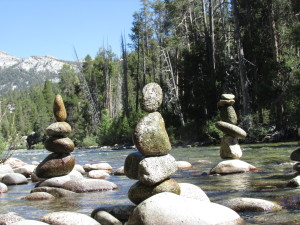The transition to virtual education is a new adventure for students, parents, and teachers. Adventures are difficult and risky. But that’s their allure. If it was easy, it wouldn’t be inspiring. Adventures also involve uncertainty. This calls for curiosity and creativity.
On the first day of class I asked my students in Zoom how they were feeling. Some reported anxiety. But a couple said it might be fun to learn this way. Let’s build on student’s youthful energy and squeeze something zesty out of our anxiety.
One teacher explained to me that she feels like an explorer in virtual space. There are new tools to master. Old ideas must be reorganized and re-evaluated. What was once taken for granted is now up for grabs.
Conservative souls will always resist change. But nimble spirits enjoy the unprecedented and unimagined. Dynamic minds are ready to adapt. We find joy in riding the waves of change. This is the genius of the artist, entrepreneur, and explorer.
Education is dynamism. It is an art of transformation that cultivates change and nourishes development. Random change is not good. It must be guided. Some truths remain perennial. But evergreen truth is not a fence or a prison. Redwoods thrive because they bend in the storm. New growth adapts to new soil.
Boredom and complacency are deadly diseases. They ruin businesses, marriages, and classrooms. Repetition dulls the senses. Bored teachers are, well… boring.
Most teachers enjoy new challenges. We are thrilled by each year’s fresh crop of students. Even though we’ve walked these trails before, new students help us see old terrain with fresh eyes. Each step takes us somewhere else.
The idea of education as adventure is an old one. Plato described education as a journey. It leads us out of darkness and toward the light. To learn is to wander beyond the familiar. It takes patience and tenacity to explore, invent, and discover. It takes courage to leave old habits behind and blaze new trails.
Alfred North Whitehead celebrated education as adventure. In his book, The Aims of Education, he insisted that educators embrace the fresh and the new. He said, “knowledge does not keep any better than fish.” He described education as an act of the contagious imagination. The metaphor of passing a torch shows how this works. Civilization depends upon the torch passers who spread the light. We also need better torches and new ways to enlighten.
This process occurs in the service of life. Whitehead said, “Education is discipline for the adventure of life.” We might simply say, education is adventure and life. He describes the history of the world as an adventure motivated by “zest.” Zest can mean both energy and flavor. A life without zest is dull and tasteless.
Each human culture is a unique adventure of the human spirit. Art, science, and religion are so many different ways of making meaning and finding flavor. Whitehead warned that when a civilization loses its taste for adventure, it begins to decay.
There is danger in any journey. Adventures are unpredictable. Sometimes we fail to arrive at our anticipated destination. But even failure can be enlightening. After all, Columbus got lost on his way to India.
The word “adventure” is related to a word that means to happen or occur. Philosophers use the word “adventitious” to mean accidental or unintentional. And for Christians “advent” signifies a time of hope for the birth of something new and wonderful. Education as adventure is open to the unintended. It is hopeful about the future. It courageously embraces the birthing process.
This brings us back to the current transformation. No one could have imagined the strange birth of online learning from out of a pandemic. Difficulties remain, especially the digital divide. But problems are opportunities. Let’s set our creative imaginations free. Let’s stop dreaming of the way things used to be. Stop complaining about the need to get back to normal.
The old normal wasn’t perfect. Why go back, when we can move forward? Let’s cook up something zesty and nutritious. Learn to bend with the wind. Find joy in transformation. And embrace the fact that history will view us as pioneers who explored the great frontier of virtual education.


